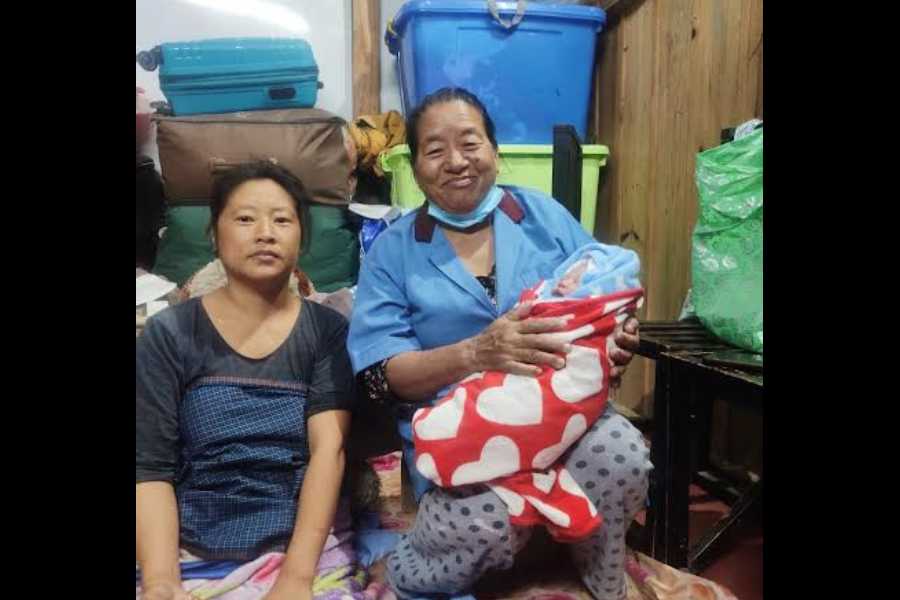Autumn is harvest season in Manipur but the state’s ethnic fabric is now riddled with gunshots, killings, abductions, rape and torched houses. In the past fortnight, village after village has faced the brunt of violence. Each new dawn is the harbinger of horrifying misery and even those in relief camps have not been spared. Following last week’s incidents in Jiribam, the Armed Forces (Special Powers) Act was reimposed in six police station areas and additional forces were rushed to the state.
Drones are allegedly being deployed for hostilities, adding to the tension and triggering panic. Attacks and counter-attacks are the order of the day. When suspected Kuki militants attacked a Meitei village in Imphal East district recently, the prospect of retaliation loomed large. The tales of woe are unending. In recent weeks, suspected militants, both Kuki and Meitei, have used sophisticated weapons to attack villages in Jiribam district, while group clashes in Ukhrul town left three dead and dozens injured.
On November 7, a 31-year-old mother of three was allegedly raped and burnt alive and nearly 20 houses were torched by suspected armed Meitei militants in Manipur’s Jiribam district. The next day, a woman was killed in Bishnupur district and suspected Kuki militants attacked farmers harvesting paddy in Imphal East district. On November 11, suspected Kuki insurgents launched a massive attack from two sides on a police station in Jiribam. Ten ‘militants’ were killed in retaliatory firing by the Central Reserve Police Force. Next to this police station is a relief camp for internally displaced persons and six inmates, including minors, went missing. Their bodies were later recovered, leading to massive protests.
With nearly 60,000 people in relief camps and road travel best avoided amid the escalation in violence, the plight of pregnant women is quite precarious. Remarkably, during this time of ethnic fragmentation and unending trauma, a Manipuri Naga woman is catering to all communities: Naga, Kuki, Meitei, as well as migrant Nepali, Bihari, Bengali workers in her village in Senapati district. Pungdila Cecilia, a sexagenarian and a trained Accredited Social Health Activist since 2006, helps women deliver their babies in the security of her own home. Cecilia, recognised as the best ASHA worker in the district, has helped over 5,650 women. She works round-the-clock and says, “With travel to Imphal now avoided by many and district hospitals charging more than the villagers can afford, the women have been flocking to my modest home. Sometimes I travel to remote areas where the villagers are so poor they cannot pay cash and offer me potatoes.” A woman from a village named Mount Everest harped on her “intuitive sense of timing and an almost magical touch.”
In the present circumstances, with Manipur on tenterhooks, women like Cecilia, who go beyond ethnic identities, are regarded as beacons of hope. Especially at a time when the political leadership is dysfunctional and the Centre is doing precious little besides holding meetings and dispatching additional forces.
Last month, before Manipur had plunged into this vortex of violence, the Union ministry of home affairs invited legislators from the Meitei, Kuki-Zo and Naga communities for a meeting convened by the Intelligence Bureau. Not surprisingly, little came of this half-hearted effort.
The state has been on the boil since March last year. Yet our globe-trotting prime minister has not visited it even once. The situation is already beyond redemption and rushing security forces or extending AFSPA will not quell the spiralling violence. It needs tact, empathy and understanding of ethnic equations and grievances of all communities to attempt a solution. How many more deaths, abductions and horrific incidents are we waiting for?











